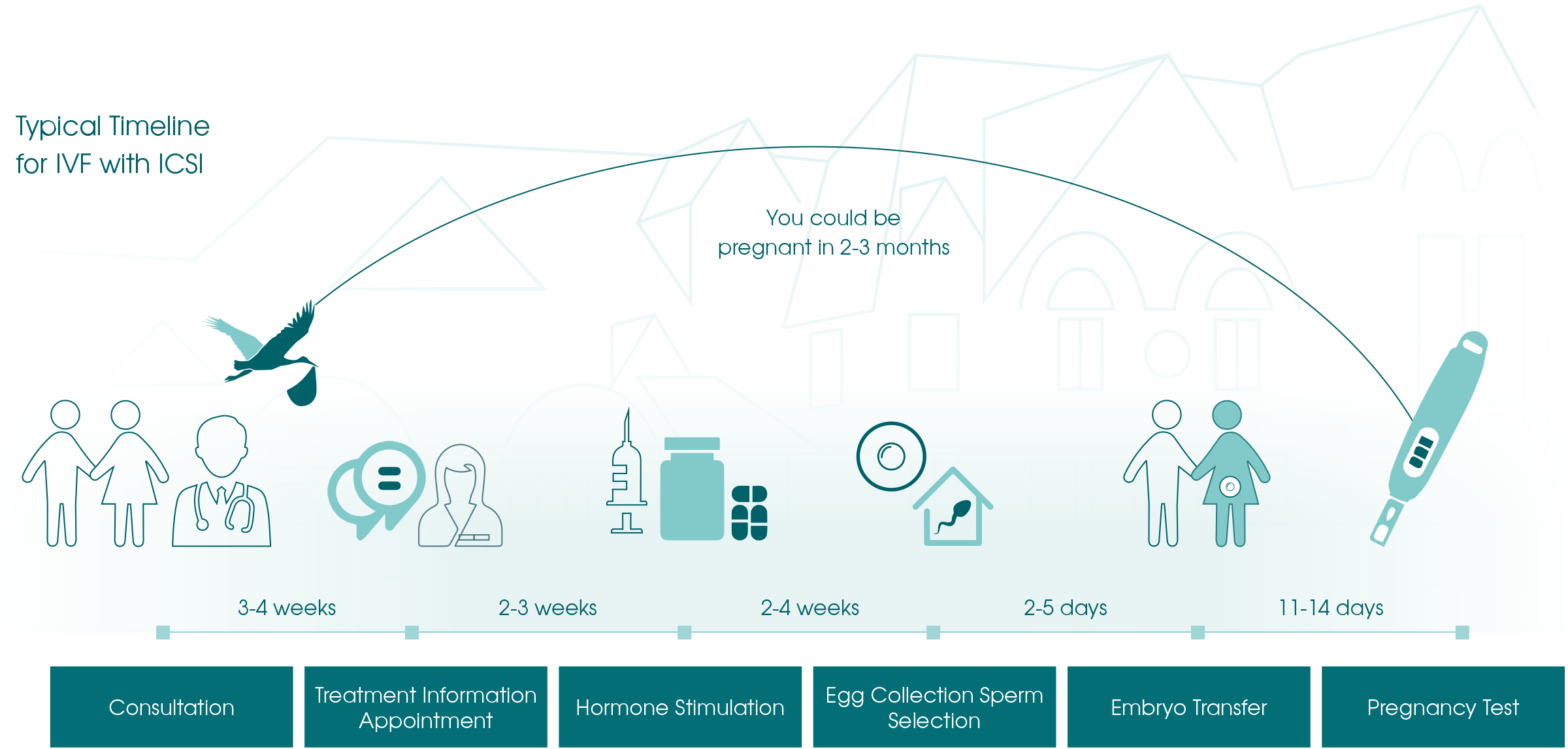Intra-Cytoplasmic Sperm Injection (ICSI)
ICSI is a fertilisation method that involves choosing a single sperm and injecting it into a mature egg using a very fine needle under microscopic control. ICSI assists the sperm to achieve fertilisation and is the recommended treatment for Male Factor Infertility.

What is ICSI?
ICSI assists the sperm to achieve fertilisation and is the recommended treatment for Male Factor Infertility.
When is ICSI recommended?
ICSI treatment is recommended in the following cases:
- Low sperm parameters (count, motility abnormal forms)or the presence of anti-sperm antibodies within the sample.
- No sperm in the ejaculate due to previous vasectomy, blockage or absence of the Vas Deferens, early testicular failure or problems with ejaculation. Surgical sperm retrieval known as PESA and/or TESE, will be required in those cases.
- Previous low fertilisation rate or failure to fertilise with conventional IVF.
Following the ICSI procedure, the injected eggs are incubated overnight and assessed the following morning by one of the embryology team for evidence of fertilisation. The average fertilisation rate following ICSI is similar to IVF with 60-70% of injected eggs fertilising normally. ICSI is the only treatment option for sperm samples that have been surgically retrieved.
Preparation for ICSI
Please note that the only difference between ICSI and conventional IVF is the laboratory procedure performed once the eggs and sperm have been obtained. The preparation for the person providing eggs for ICSI is identical to that of IVF. The person providing eggs will be required to undergo viral screening, drug stimulation, ultrasound monitoring and egg collection as for IVF.
The embryology team will be more than happy to assist you with any questions you may have regarding whether IVF or ICSI is the best treatment for you.
After the procedure
Your fertilised eggs are monitored closely and our embryology team will assess the best day to transfer the developing embryo(s) into the womb.
You can be assured of the best possible treatment throughout these procedures and of our continued support and care.
![]()







